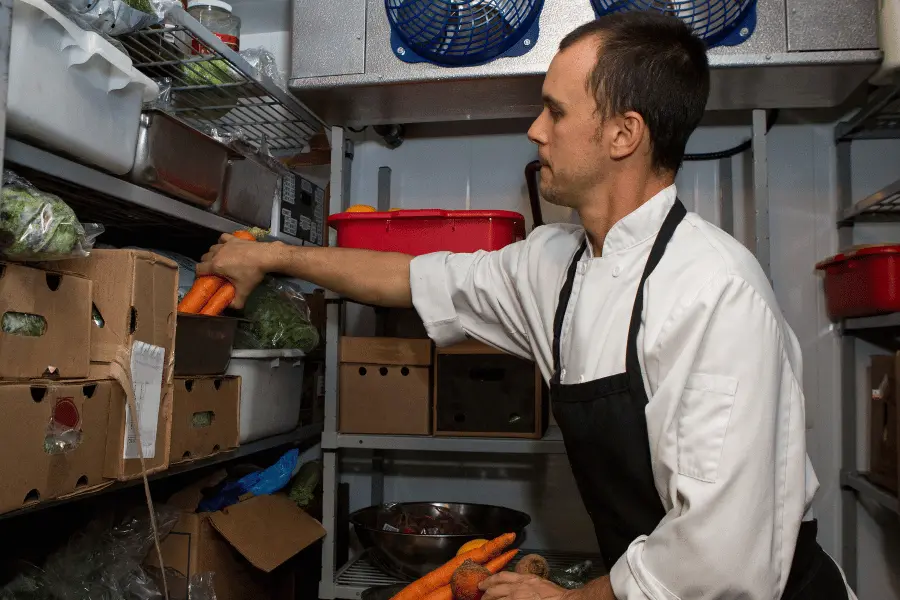In the high-pressure environment of commercial kitchens, waste is often an overlooked but critical challenge. From overstocked inventory and food scraps to packaging and energy inefficiencies, the by-products of running a kitchen can quietly eat into profits, sustainability goals, and operational flow. As hospitality businesses shift towards conscious, future-ready design, waste management in commercial kitchens is emerging as a central focus. It’s not just about reducing waste, it’s about rethinking how kitchens function, from layout to logistics.
Designing with Waste in Mind

Smart waste management in commercial kitchens begins long before a dish is plated. The kitchen layout itself can determine how efficiently materials move, and how much is wasted in the process. Ergonomic flow planning reduces unnecessary motion, while modular prep stations and clear zoning for dry and wet waste encourage quick segregation. Incorporating dedicated recycling units, compost bins, and waste compactors into the design ensures that disposal isn’t an afterthought, but a streamlined part of the workflow.
Data-Driven Decisions for Less Waste

Modern kitchens can now leverage technology to track and reduce waste with precision. IoT-enabled sensors on bins can measure food waste in real-time, while inventory management systems flag overstocking or spoilage risks. Smart software solutions offer analytics that help chefs and operators understand consumption trends, allowing for more accurate ordering, menu planning, and portion control. In this way, waste management becomes a continuous improvement process powered by data, not guesswork.
Composting and Circular Loops
Composting is no longer just a sustainability buzzword, it’s a viable solution for urban and rural hospitality businesses alike. On-site composting units are increasingly compact and efficient, turning organic waste into nutrient-rich material that can be used for landscaping or partnerships with local farms. When integrated into kitchen routines, composting supports a closed-loop system, contributing to a broader culture of responsibility within the food and beverage space and reinforcing effective waste management strategies.
Smart Storage for Smarter Use

One of the most common sources of food waste is poor storage planning. Effective waste management in commercial kitchens tackles this head-on by designing walk-in coolers and dry storage areas for maximum visibility and airflow. Transparent bins, First-In-First-Out (FIFO) labelling, and humidity-controlled zones help preserve food longer and make inventory easier to manage. Digital shelf-life trackers and automated alerts for expiration dates also prevent spoilage before it starts.
Training and Accountability
Even the most advanced systems are only as effective as the people who use them. Establishing a kitchen culture that values waste reduction starts with training on portioning, composting, recycling, and efficient prep techniques. Clearly defined responsibilities, visual cues near disposal stations, and performance tracking can help ensure accountability. Many kitchens are also incentivising waste reduction with employee recognition programmes, turning sustainability into a team-wide goal and embedding smart waste management into daily operations.
Waste Management as Brand Differentiator
Smart waste management in commercial kitchens isn’t just good for the environment, it’s great for business. Guests are becoming more conscious of how their meals are sourced and served. A visible commitment to reducing food and material waste can become a powerful part of a brand’s story. From eco-labels on menus to behind-the-scenes sustainability tours, there’s growing consumer appreciation for brands that treat waste management not as a cost of doing business, but as an opportunity for innovation.
A Smarter, Cleaner Future
As commercial kitchens become more intelligent and sustainable, waste management is no longer relegated to the back burner. It is, quite literally, baked into the design. At HPG Consulting, we help hospitality businesses incorporate waste-smart solutions into every layer of the kitchen from blueprint to daily operations. Because in a world that demands more from less, designing for minimal waste is not just practical, it’s essential.